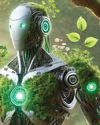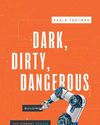
As far as the science of organ transplantation has come, rejections do still occur. Overall, rejection happens 10-15% of the time, though this varies by organ. There are various reasons this can occur, and often the trouble takes place before any operation. As good as doctors are, they sometimes select organs that are not right for the particular patient, or not suitable for transplantation at all. With its superior ability to sift through a lot of data, recognize patterns, and make predictions based off that information, AI might be able to help. It could select organs for transplantation much more accurately than humans ever could.
QUALITY ASSESSMENT
The UK's National Institute for Health and Care Research is putting more than £1 million ($1.22 million) toward the development of an Al-based recognition software called Organ Quality Assessment (OrQA) that uses a database of tens of thousands of images of organs to determine whether donor ones will be suited for transplantation. That's usually a job for surgeons, but it's one that a trained Al can do a lot better.
“Currently, when an organ becomes available, it is assessed by a surgical team by sight, which means, occasionally, organs will be deemed not suitable for transplant,” Professor Hassan Ugail, Director of the Centre for Visual Computing at the University of Bradford, said. “We are developing a deep machine learning algorithm which will be trained using thousands of images of human organs to assess images of donor organs more effectively than what the human eye can see.
この記事は The BOSS Magazine の May 2023 版に掲載されています。
7 日間の Magzter GOLD 無料トライアルを開始して、何千もの厳選されたプレミアム ストーリー、9,000 以上の雑誌や新聞にアクセスしてください。
すでに購読者です ? サインイン
この記事は The BOSS Magazine の May 2023 版に掲載されています。
7 日間の Magzter GOLD 無料トライアルを開始して、何千もの厳選されたプレミアム ストーリー、9,000 以上の雑誌や新聞にアクセスしてください。
すでに購読者です? サインイン

Travel Well in 2025
The best places to see & best things to do in the new year

Getting Back to giving
How to revive charitable donations, with Charitybuzz CEO Ben Erwin

Breathtaking BUILDINGS
THE WORLD'S MOST AWE-INSPIRING EDIFICES

ALong for the Ride
Clean energy projects go up in areas once dominated by fossil fuels

HEALTHCARE ANALYTICS: FIGHTING THE GOOD FIGHT
Advanced analytics are transforming healthcare operations and patient care. Nevada's Renown Health is leading the way, creating a roadmap for swift and effective change.

THE RIGHT ACCELERANT
THE POSSIBILITIES - AND LIMITATIONS OF AI IN SCIENTIFIC RESEARCH

IN GLOBAL LOGISTICS
How thinking global and acting local is enlarging the global footprint of the Staci Group

THE RIGHT STUFF
Why veterans thrive in logistics

LIVING MACHINES
BIOHYBRIDS BRING THE POWER OF NATURE TO ROBOTICS

MANUFACTURING'S NEW LOOK
The industry’s reputation doesn’t match reality, but the future is bright